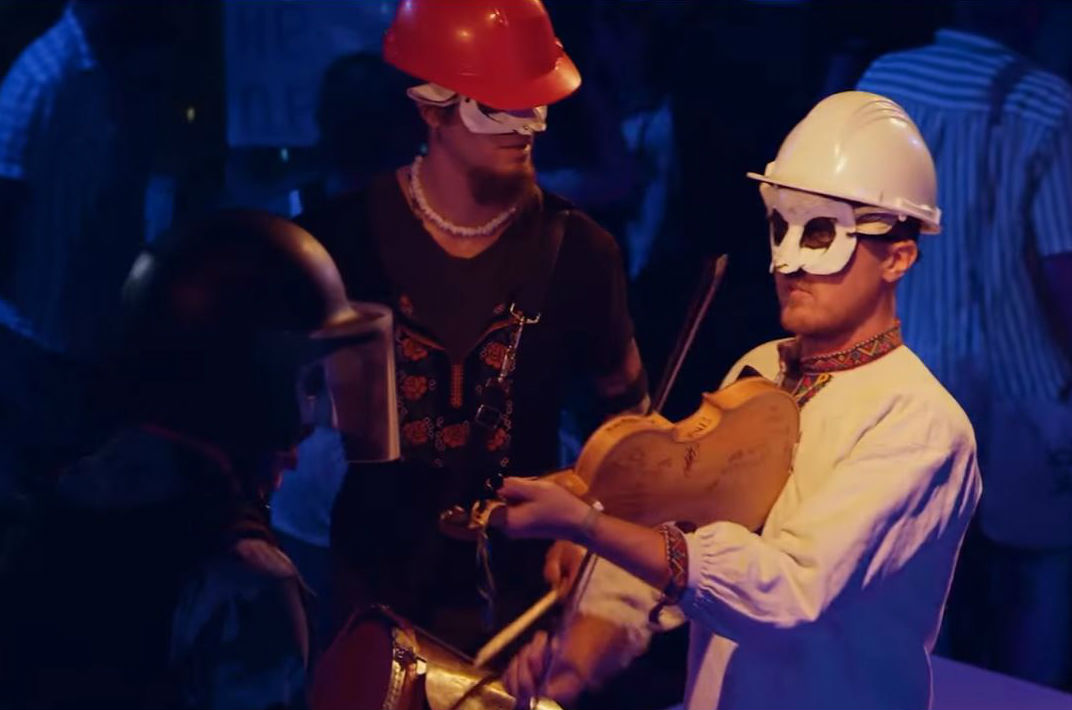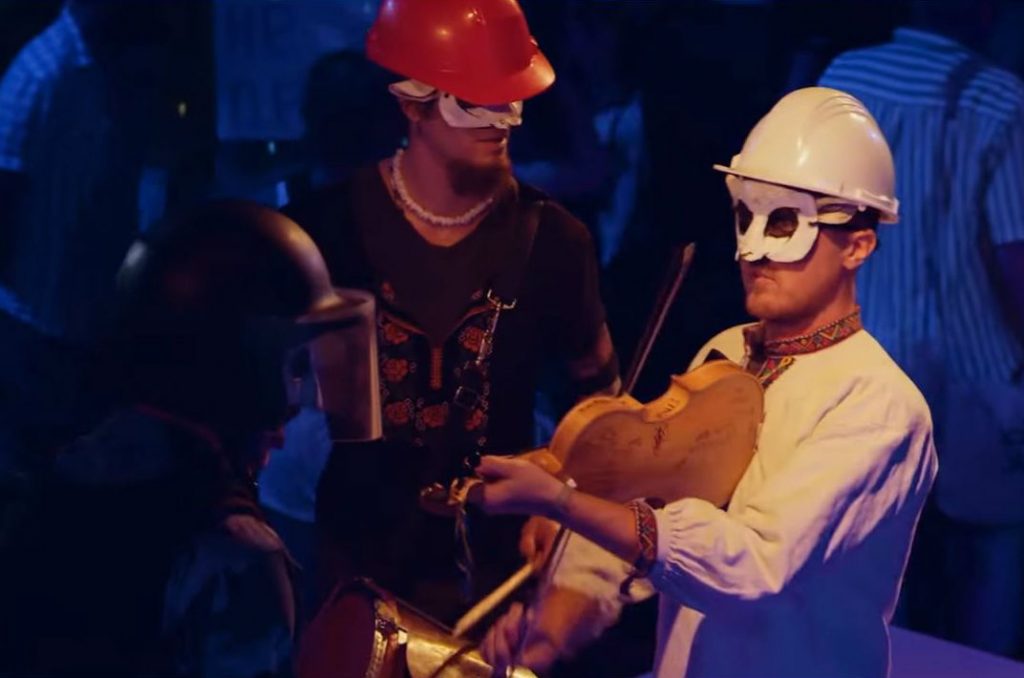 “Counting Sheep” is a “guerrilla folk opera” that guides audiences on an immersive and soulful journey through Ukraine’s Revolution of Dignity.
“Counting Sheep” is a “guerrilla folk opera” that guides audiences on an immersive and soulful journey through Ukraine’s Revolution of Dignity.
Its creators are Mark and Marichka Marczyk who met and fell in love in Kyiv during the protests of 2013 and 2014. Mark is a talented Canadian musician of Ukrainian heritage and Marichka Kudriavtseva is an ethnomusicologist and performer from Ukraine who has toured with the renowned folk ensemble Bozhychi.
They collaborated with the Lemon Bucket Orkestra, a Toronto troupe, and have created a special work of art based on a score that weaves joyful folk tunes and polyphonic choral pieces with a spiritual quality.
https://www.youtube.com/watch?v=ErHdCnHahXY
The opera opens at a family’s Christmas Eve celebration where two dozen audience members are invited to take places along a long and narrow dining table. The rest of the audience are seated on wooden benches that surround the theatre on risers.
Along the walls hang giant, makeshift screens made from sheets that project the narrative of the revolution through newscasts and images of the weeks leading up to the overthrow of Ukraine’s corrupt President Viktor Yanukovych.
The dinner scene is interrupted when armed riot police stand on a dais at the end of the table. Guests scatter and Marichka defiantly climbs atop the table and sings as she marches toward the guards holding and unfurling a traditional Ukrainian embroidered tablecloth as a train.
Her dramatic act of defiance is the fitting symbol of the revolution when the Ukrainian people firmly resisted the tyranny and power unleashed by their corrupt government.
A series of stop action vignettes portray the growing violence between soldiers and protesters, then suddenly the actors overturn then dismantle the table and grab the audience’s benches, chairs, and tires to erect a barrier for protection.
The theater becomes the stage and the audience become the protesters. They help build the barricades and throw rubber bricks over the barricade. A makeshift kitchen is set up offering soup and bread. Dancing breaks out and a wedding is staged, as happened during that winter.
During the fun, the giant screens show newscasts from around the world, footage and English subtitles to advance the narrative.
Then screens suddenly shift to the murder and mayhem of February 18 when the barricades were burned and breached, snipers shot hundreds and battle-hardened soldiers waded into the square, maiming hundreds more. The set, like the Maidan, turns into a warzone with the din of bombs and gunfire and scenes of fire bombings, beatings, and theatrical tear gas.
After the attack, attention turns to a young woman who sings a soulful aria to her murdered lover as screens show the aftermath of the attacks when dozens of caskets of protesters were hoisted and carried through the throng at the Maidan.
The opera ends, as did the revolution, with Mark and Marichka dressed in fatigues, girding for war, as the chorus performs a soul-stirring requiem.
This production is a fitting tribute to the revolution, special and important. Like the revolution it depicts, the opera is courageous and a labor of love. After critical success in Toronto, “Counting Sheep” will be performed during the Edinburgh Fringe Festival throughout August and, hopefully, beyond.
As Mark said in an interview, “It’s a story that must be told because it is not over yet.”
Diane Francis is a Senior Fellow at the Atlantic Council’s Dinu Patriciu Eurasia Center, Editor at Large with the National Post in Canada, a Distinguished Professor at Ryerson University’s Ted Rogers School of Management, and author of ten books.
Image: A scene from “Counting Sheep,” a folk opera depicting the Euromaidan in Kyiv, Ukraine. Credit: Courtesy Screenshot YouTube
